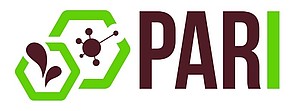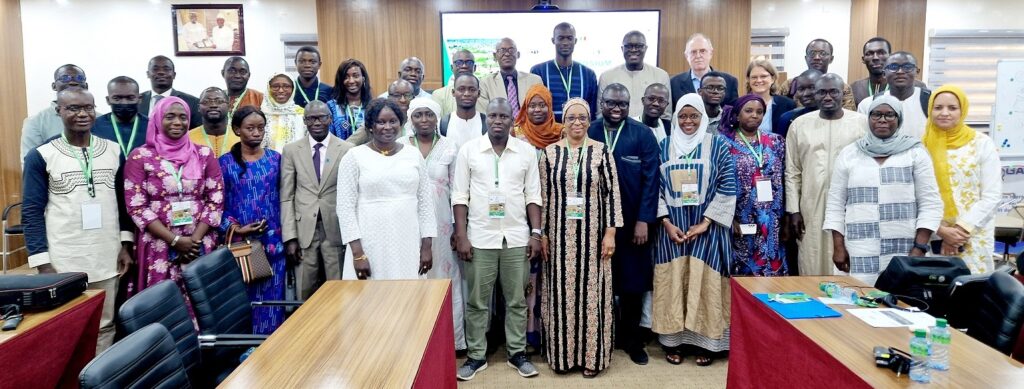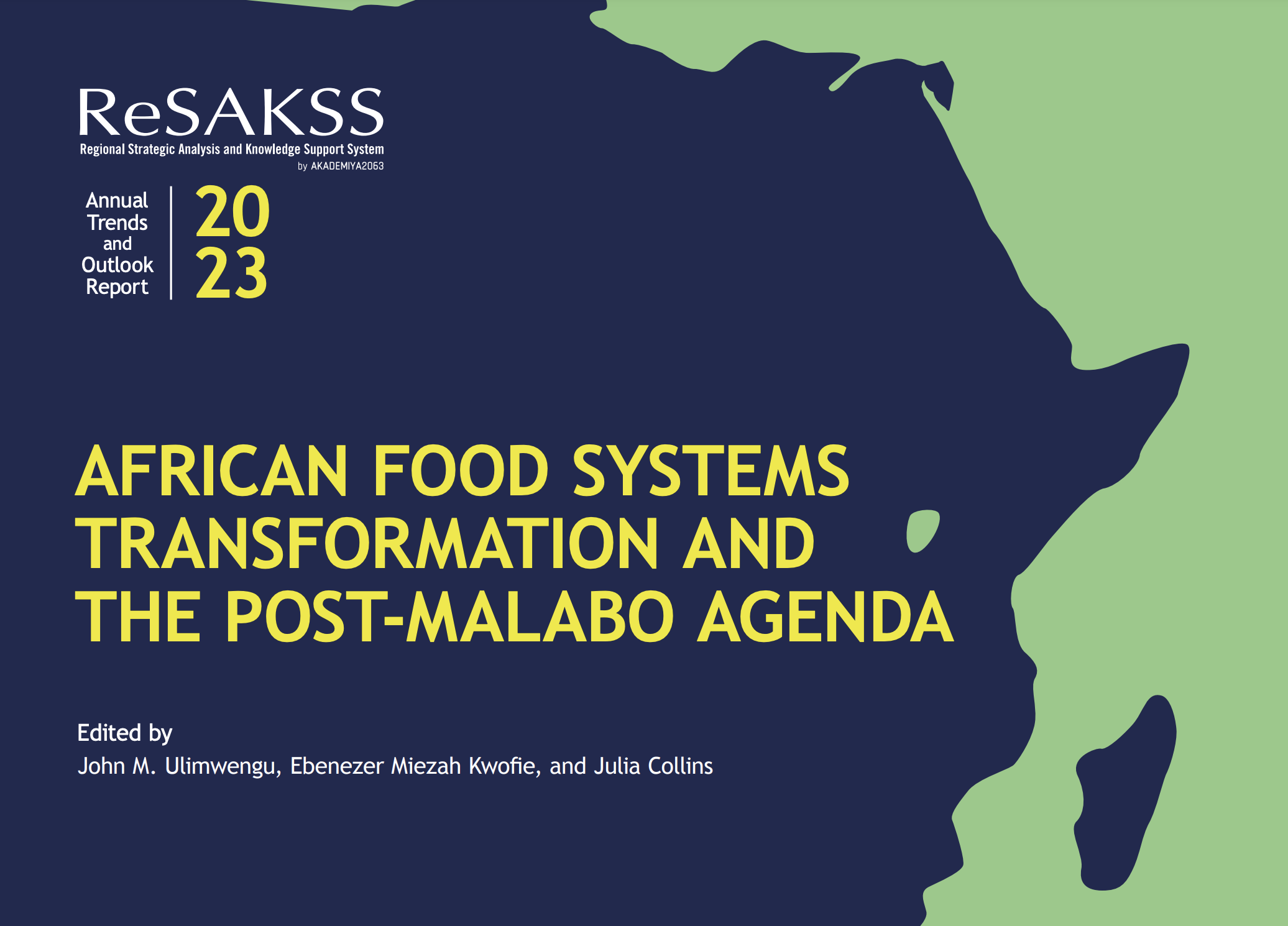Organised by PARI- Program of Accompanying Research for Agricultural Innovation
In the Malabo Declaration on Accelerated Agricultural Growth and Transformation for Shared Prosperity and Improved Livelihoods adopted in 2014, Heads of State and Government of the African Union agreed on a remarkable set of concrete agriculture goals to be attained by 2025. The Malabo Summit reconfirmed that agriculture should remain high on the development agenda of the continent, and is a critical policy initiative for African economic growth and poverty reduction. With 2025 approaching, it is now time to look beyond the Malabo Declaration to chart a way forward for African food and agriculture systems.
To this end, this high-level panel will discuss progress made to date in achieving the Malabo Declaration’s goals and identify priorities for future action.
- Joachim von Braun, Center for Development Research, University of Bonn and PARI
"When you are confronted with a political economy issue you can either EXIT, VOICE or LOYALTY [to an existing policy]. As scientist we can only opt to VOICE" - Quote from Exit, Voice, and Loyalty (1970) a treatise written by Albert O. Hirschman. - Getaw Tadesse, AKADEMIYA2063 - Setting the scene: Financing progress towards achieving the CAADP targets
- Simeon Ehui, Director General, International Institute of Tropical Agriculture (IITA), and CGIAR Regional Director
- Ousmane Badiane, Executive Chairperson, AKADEMIYA2063
- Aggrey Agumya, Director General, Forum for Agricultural Research in Africa (FARA)
- Wilhelmina Quaye, Director,Science and Technology Policy Research Institute of the Council for Scientific and Industrial Research (CSIR-STEPRI), Ghana
Background PARI- Program of Accompanying Research for Agricultural Innovation
Africa is increasingly emphasizing the role of innovation in development. The Science, Technology and Innovation Strategy for Africa 2024 takes into consideration the social, economic, and technological progress Africa has made over the last decade. Innovation for sustainable and high agricultural growth forms an important part of this ambition. The German Government has acknowledged this innovation potential and wants to support the improvement of food and nutrition security and sustainable agricultural value chains through Green Innovation Centers (GICs) in Africa and India implemented by the GIZ.
PARI brings together partners from Africa, India and Germany to conduct research on sustainable agricultural development, food systems transformation, and food and nutrition security in Africa and India.
The core topics and thematic research priorities of the PARI have been identified in accordance with the African Union’s CAADP (Africa’s policy framework for agricultural transformation, wealth creation, food security & nutrition, economic growth & prosperity for all) as part of the New Partnership for Africa’s Development (NEPAD).
National partners in Africa and India:
- Forum for Agricultural Research in Africa (FARA)
- African Growth and Development Policy Modeling Consortium (AGRODEP)
- University of Hohenheim (UHOH)
- Akademiya2063
- National Partners in Africa
Related:
10 November 2023. Stakeholders Consult on the Roadmap for a Post-Malabo Agenda
With technical support from Policy LINK (Feed the Future, USAID), the African Union Commission (AUC) held a one-day meeting at AU headquarters in Addis Ababa, Ethiopia, to foster a collaborative approach to the Comprehensive Africa Agriculture Development Programme (CAADP) Post-Malabo Agenda development process. The November 10 consultative meeting introduced the Post-Malabo Agenda Concept Note and Roadmap.Related:
21 January 2024. Launch of the African Agriculture Policy Dialogue (APD) project between Germany & the African Union, with Hon. Cem Oezdemir, Germany Minister of Food and Agriculture.
DURATION:11/2023 - 11/2026
PROMOTING SUSTAINABLE DEVELOPMENT IN AFRICA THROUGH AGROFORESTRY. CSE and PARI presented results from a mapping of current and future agroforestry extent in Africa and related economic impacts.
DURATION:11/2023 - 11/2026
The aim of the project is to accelerate the transformation and strengthening of food systems at the level of Regional Economic Communities (RECs) and African Union (AU) member states through a support programme (ISM-PRASS) to be developed by the AU Commission. As part of this co-operation, the APD will serve as a platform to facilitate and strengthen the joint exchange of knowledge, experience, technology and skills in areas of mutual interest.
The project will focus on strengthening the capacity of the AU Commission in developing strategic guidelines, developing and testing an implementation mechanism and knowledge management. The Department of Agriculture, Rural Development, Blue Economy and Sustainable Development of the AU Commission (AUC-DARBE) is the central partner in this endeavour. In addition, cooperation is planned with the development organisation AUDA-NEPAD, the RECs and other stakeholders from science, business and civil society.
IAK Agrar Consulting GmbH is the lead partner in the consortium with the Andreas Hermes Akademie (AHA) and the Food, Agriculture and Natural Resources Policy Analysis Network (FANRPAN).
The project will focus on strengthening the capacity of the AU Commission in developing strategic guidelines, developing and testing an implementation mechanism and knowledge management. The Department of Agriculture, Rural Development, Blue Economy and Sustainable Development of the AU Commission (AUC-DARBE) is the central partner in this endeavour. In addition, cooperation is planned with the development organisation AUDA-NEPAD, the RECs and other stakeholders from science, business and civil society.
IAK Agrar Consulting GmbH is the lead partner in the consortium with the Andreas Hermes Akademie (AHA) and the Food, Agriculture and Natural Resources Policy Analysis Network (FANRPAN).
1/2: I had a very insightful #Pressconference with Hon.Cem Ozdemir, Minister of Food & Agric. of #Germany & Hon. PauloTeixeira Minister of Agric & Livestock of #Brazil at the #GFFA. I shared our #AU efforts to strengthen #FoodSystems to address & mitigate all forms #FoodCrisis pic.twitter.com/bwXKJMLDVK
— Amb. Josefa Sacko (@JosefaSacko) January 20, 2024
Related:
2 February 2024. Dakar. International Symposium on promoting sustainable development in Africa through agroforestry: Mapping extent and assessing benefitsPROMOTING SUSTAINABLE DEVELOPMENT IN AFRICA THROUGH AGROFORESTRY. CSE and PARI presented results from a mapping of current and future agroforestry extent in Africa and related economic impacts.
- Joachim von Braun, Center for Development Research, University of Bonn and PARI Director - Promoting sustainable development in Africa through bioeconomy with agroforestry
- Éliane Ubalijoro (see picture), Chief Executive Officer of the Center for International Forestry Research and World Agroforestry (CIFOR-ICRAF) and Director General of ICRAF - Achieving mitigation and adaptation to climate change through sustainable agroforestry practices in Africa
- Abdoul Aziz Diouf, CSE - Remote sensing-based mapping of past, current and future agroforestry areas in Africa
- Alisher Mirzabaev, International Rice Research Institute - Assessment of the direct ecosystem benefits and indirect socio-economic benefits of agroforestry
- Heike Baumüller - Launch of the database on costs and benefits of agroforestry in Africa
- Abdoul Aziz Diouf Remote sensing-based mapping of past, current and future agroforestry areas in Africa
- Alisher Mirzabaev Assessment of the direct ecosystem benefits and indirect socio-economic benefits of agroforestry, contributing to sustainable food systems, poverty reduction, and employment in the context of climate change adaptation and mitigation
Typology, practices and future evolution of Agroforestry in Senegal, Kenya, Cameroon and Zambia
Researchers/Experts from UASZ, ICIPE, GEP, NRSC
Researchers/Experts from UASZ, ICIPE, GEP, NRSC
Resource:
Ulimwengu, J. M., Kwofie, E.M., and Collins, J. (Eds.) (2023). African Food Systems Transformation and the Post-Malabo Agenda. ReSAKSS 2023 Annual Trends and Outlook Report. Kigali and Washington, DC: AKADEMIYA2063 and International Food Policy Research Institute (IFPRI). # 356 p.- Chapter 1| INTRODUCTION - John M. Ulimwengu, Ebenezer Miezah Kwofie, Julia Collins, and Augustin Wambo Yamdjeu [Download]
- Chapter 2| SEVEN YEARS OF THE IMPLEMENTATION OF THE MALABO DECLARATION: MAKING SENSE OF THE MALABO THEORY OF CHANGE - John M. Ulimwengu, Wondwosen Tefera, and Augustin Wambo Yamdjeu [Download]
- Chapter 3| FOOD SYSTEM DIAGNOSTICS AND POLICY IMPLICATIONS Greenwell Matchaya and Paul Maina Guthiga [Download]
- Chapter 4| COMMITTING TO TRANSFORM FOOD SYSTEMS: RESPONSIVENESS OF PLEDGES BY AFRICAN GOVERNMENTS TO THE WHO PRIORITY FOOD SYSTEMS POLICIES AND SELECT CAADP BIENNIAL REVIEW INDICATORS - Amos Laar, Silver W. Nanema, and Gideon S. Amevinya [Download]
- Chapter 5| THE CALL FOR NUTRITION-SMART FOOD SYSTEMS - John M. Ulimwengu, Léa Vicky Magne Domgho, and Julia Collins [Download]
- Chapter 6| A PARADIGM SHIFT IN FOOD SAFETY FOR AFRICA - Amare Ayalew, Fatima Kareem, and Delia Grace [Download]
- Chapter 7| A FORENSIC FRAMEWORK FOR HARMONIZED AND HOLISTIC FOOD SYSTEM RESILIENCE AND SUSTAINABILITY ANALYSIS Prince Agyemang, Ebenezer Miezah Kwofie, and John M. Ulimwengu [Download]
- Chapter 8| ECONOMICS OF CLIMATE ADAPTATION FOR RESILIENT FOOD SYSTEMS IN AFRICA - Fleur Wouterse, Amara Zongo, and Gul Tucaltan [Download]
- Chapter 9| GENDER AND FOOD SYSTEMS: AVENUES FOR TRANSFORMATION? - Agnes Quisumbing, Jessica Heckert, Hazel Malapit, Ruth Meinzen-Dick, Kalyani Raghunathan, Greg Seymour, Simone Faas, and Emily Myers [Download]
- Chapter 10| BIOECONOMY: A PATH TO AFRICAN FOOD SYSTEM TRANSFORMATION - Raphael Aidoo, Ebenezer Miezah Kwofie, Katrin Glatzel, and Julius Ecuru [Download]
- Chapter 11| DATA CHALLENGES AND OPPORTUNITIES FOR FOOD SYSTEMS TRANSFORMATION - Greenwell Matchaya, Tsitsi Makombe, and Neli Georgieva Mihaylova [Download]
- Chapter 12| INVESTING IN SCIENCE, TECHNOLOGY AND INNOVATION FOR SUSTAINABLE, PRODUCTIVITY-LED AGRICULTURAL GROWTH - Keith Fuglie [Download]
- Chapter 13| CAADP TRENDS AND IMPLEMENTATION PROCESSES - Julia Collins, Wondwosen Tefera, and Augustin Wambo Yamdjeu [Download]
- Chapter 14| CONCLUSIONS - John M. Ulimwengu, Ebenezer Miezah Kwofie, and Julia Collins [Download]








No comments:
Post a Comment